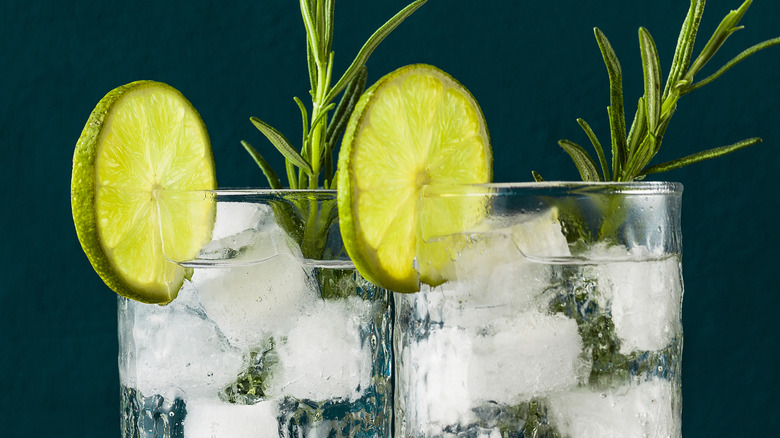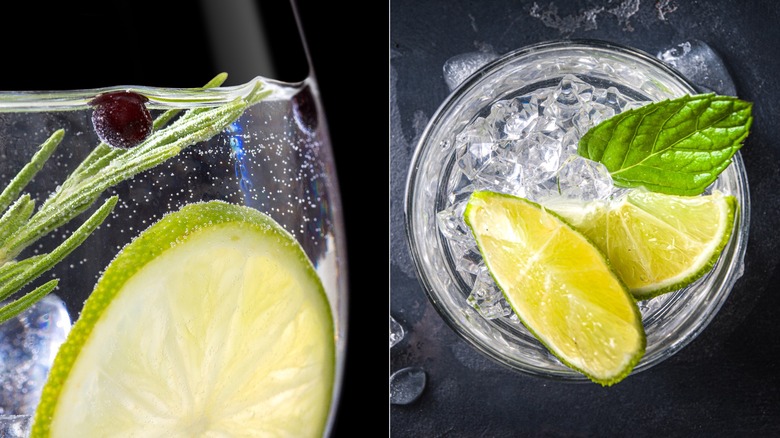The Surprising Reason Gin And Tonic Was Invented
Is there any better summertime drink than a gin and tonic? A classic cocktail of juniper-infused gin and astringent tonic water, G&T's are usually served with fresh lime over lots of ice — and are the ultimate refresher when it's hot and humid.
If you enjoy gin and tonics, you may already know about their origin story. According to Escape, this story has its roots in some unlikely (when it comes to cocktails) historical events. Used by locals for the prevention of malaria, the bark of the cinchona, or quina-quina, tree was introduced to Jesuit missionaries in South America back in the 1630s (via Malaria Journal). Later, in the early 1800s, quinine — taking its name from the tree — was extracted from the bark and purified into a powder; this purified version went on to largely replace the use of the bark and was what British soldiers were given during the colonization of India in the 19th century. Slate notes that by the 1840s, Britain was sending about 700 tons of cinchona bark to India for its British citizens and soldiers. And, it would be this antimalarial that would spark the idea of creating a "tonic water."
Was the gin and tonic really invented as a malaria preventative?
Per Escape, gin and tonic's origin story goes like this: British soldiers, who were each given a daily ration of quinine powder as an antimalarial during the colonial occupation of India, at some point thought to mix in some gin. Slate explains that the soldiers first tried mixing the bitter powder with sugar and water, creating a kind of early version of "tonic water," but then, as Escape says, the soldiers also tried mixing in gin, finding that the distilled drink further smoothed out the sharp taste — and it probably didn't hurt that the drink was inebriating as well.
The Independent reports it was actually a British man named Erasmus Bond who invented the first official tonic water in 1858, inspired by the fact that many people by that time had already started to use gin to help with quinine's bitterness. Even Winston Churchill acknowledged the genius of the cocktail, once declaring, "The gin and tonic has saved more Englishmen's lives, and minds, than all the doctors in the Empire."
But can a refreshing cocktail really help prevent malaria? According to Forbes, one would need to drink 67 liters of tonic water in order to reach the dosage of quinine that is antimalarial. While it's unclear how much tonic water British soldiers downed per day, it's quite unlikely that they reached nearly 70 liters — and unclear how much of a role tonic water (with or without gin) really had in preventing malaria. One thing we know for sure G&Ts are an antidote for? Hot, humid summer nights.

